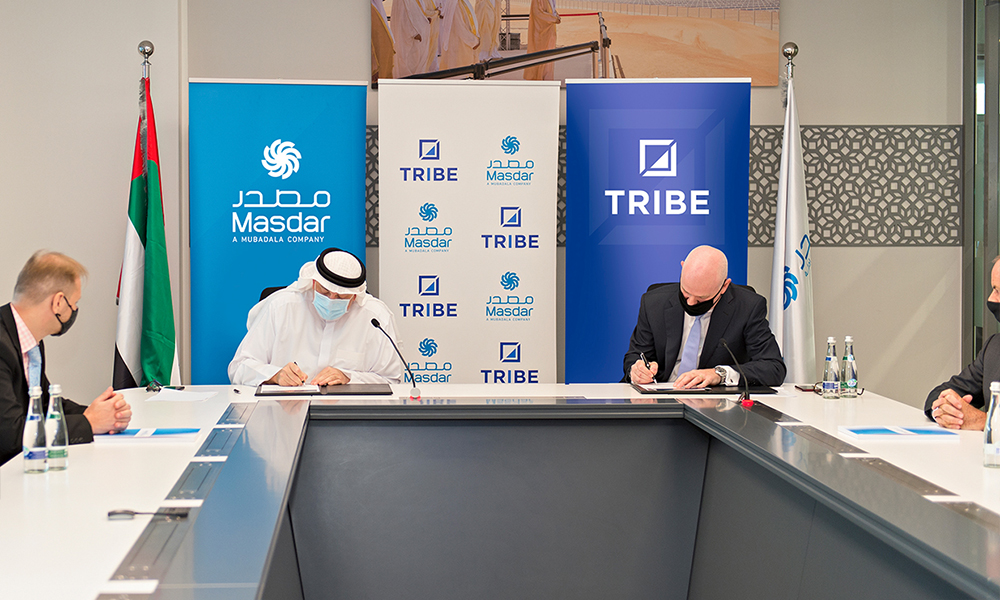Masdar, Tribe establish joint venture for energy from waste projects in Australia
JV aims to develop energy from waste projects across Australia as well as support the delivery and management of said projects

Renewable energy company Masdar and Tribe Infrastructure Group, an infrastructure advisory and development firm, have signed an agreement to establish a joint venture (JV) in Australia. The newly formed JV is expected to strengthen collaboration in the deployment of utility-scale energy-from-waste (EfW) projects.
According to a statement from Masdar, the aim of the JV company is to develop EfW projects across Australia, as well as support the delivery and management of these projects. In January 2020, Masdar and Tribe had announced that they had acquired a 40% stake in the East Rockingham Waste to Energy project in Perth, Western Australia. Masdar stated that construction on the $377 million greenfield facility, is ongoing and the plant is expected to be operational in late 2022. It is located in the Rockingham Industry Zone, 40 km south of Perth.
When completed, the plant will process 300,000 tonnes per year of non-recyclable residual municipal, commercial and industrial waste and up to 30,000 tonnes of biosolids per year. The facility will also recover approximately 70,000 TPA of bottom ash, which will be processed for use in road base and other construction materials.
Masdar, in its statement, also said that the facility will generate 29 MW of baseload renewable energy, enough to power more than 36,000 homes, and displace more than 300,000 tonnes of CO2 emissions per year.
Furthermore, in October 2020, Masdar and Tribe had joined Opal Australian Paper and SUEZ Australia and New Zealand, as additional equity partners for the development of the Maryvale EfW facility in Victoria, Australia. The Maryvale EfW project will divert approximately 325,000 tonnes of non-recyclable residual waste from landfill and reuse it to generate steam and electricity.
Commenting on the agreement which occurred during the inauguration of the Australia-United Arab Emirates Business Council, Christopher Pyne, former Australian Defence Minister, said: “Tribe and Masdar have the distinction of being the first companies to ink contracts that actively engage in business activity in Australia as part of the Australia UAE Business Council. Australia and the UAE have very strong connections, and the JV agreement between Masdar and Tribe for turning waste into energy is only the beginning of the relationship that the two companies will have across Australia.”
Meanwhile, HE Abdullah Al Subousi, UAE Ambassador to Australia, said: “Masdar has been a great champion of the energy-from-waste sector. We are honoured to see Masdar and Tribe come together to establish a JV company and I hope this can pave the way for future collaboration in additional sectors.”
Additionally, Mohamed Jameel Al Ramahi, CEO of Masdar, added: “The Australian energy from waste sector provides excellent potential in the long-term. The signing of this agreement is a reflection of Masdar’s global clean energy ambitions and will further support Australia’s roadmap towards a low-carbon future.”
Peter McCreanor, CEO at Tribe stated that they are delighted to announce their long-term partnership with Masdar and look forward to delivering world-class clean energy infrastructure projects for the communities in which they operate.
“Energy from waste is safe, reliable and affordable and we’re pleased to be at the forefront of bringing this technology to Australia. We look forward to delivering sustainable waste management solutions that provide superior environmental outcomes and make sound economic sense,” McCreanor concluded.
In its statement, Masdar said that approximately 27 million tonnes of waste is landfilled in Australia, each year, yet there are currently no utility-scale energy from waste plants operating in the country. Hence, it represents an attractive market for investment in EfW projects as part of a widespread push to help decarbonise the Australian economy.

























